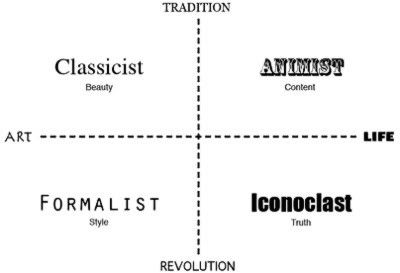Each of us has known such creatures, whom Walter Benjamin defines as "crepuscular" and incomplete, similar to the gandharvas of the Indian sages, who are half celestial genie, half demon. "None has a firm place in the world, or firm, inalienable outlines. There is not one that is not either rising or falling, none that is not trading its qualities with its enemies or neighbor; none that has not completed its period of time and yet is unripe, none that is not deeply exhausted and yet is only at the beginning of a long existence." More intelligent and gifted than our other friends, always intent on notions and projects for which they seem to have all the necessary virtues, they still do not succeed in finishing anything and are generally idle [senz' opera]. They embody the type of eternal student or swindler who ages badly and who must be left behind in the end, even if it is against our wishes. And yet something about them, an inconclusive gesture, an unforeseen grace, a certain mathematical boldness in judgment and taste, a certain air of nimbleness in their limbs or words -- all these features indicate that they belong to a complementary world and allude to a lost citizenship or inviolable elsewhere. In this sense, they give us help, even though we can't quite tell what sort of help it is. It could consist precisely in the fact that they cannot be helped, or in their stubborn insistence that "there is nothing to be done for us." For that very reason, we know, in the end, that we have somehow betrayed them.[as quoted at Ads Without Products]
Showing posts with label miscellany. Show all posts
Showing posts with label miscellany. Show all posts
12 December 2008
Nothing to Be Done
From Giorgio Agamben's Profanations:
04 December 2008
Called By Other Names
"Quid ergo amo, cum deum meum amo?"
~ Augustine of Hippo, Confessions, Book 10 (Chapter 7)
"[Jacques] Derrida was intrigued by Saint Augustine, a fellow North African. With Saint Augustine he asked, 'What do I desire [love] when I desire [love] my God?' This question has no certain answer but it is worth asking because it opens up expectations and possibilities for God's action. Derrida compared his mother with the mother of Augustine, Monica who worried about their children's faith. He writes, '...my religion about which nobody understands any more than my mother who asked other people a while ago, not daring to talk to me about it, if I still believed in God ... but she must have known that the constancy of God in my life is called by other names, so that I rightly pass for an atheist, the omnipresence of what I call my God in my absolved, absolutely private language being neither that of an eyewitness nor that of a voice doing anything other than talking to me without saying anything, nor a transcendent law or an immanent schechina, that feminine figure of a Yahweh who remains so strange and so familiar to me..' (Derrida in 'Jacques Derrida' p.154)."
~ John Paolini, "The Possibility of God: An Essay in the Philosophy of Religion" (2003)
~ Augustine of Hippo, Confessions, Book 10 (Chapter 7)
.OOOOOOO.
"[Jacques] Derrida was intrigued by Saint Augustine, a fellow North African. With Saint Augustine he asked, 'What do I desire [love] when I desire [love] my God?' This question has no certain answer but it is worth asking because it opens up expectations and possibilities for God's action. Derrida compared his mother with the mother of Augustine, Monica who worried about their children's faith. He writes, '...my religion about which nobody understands any more than my mother who asked other people a while ago, not daring to talk to me about it, if I still believed in God ... but she must have known that the constancy of God in my life is called by other names, so that I rightly pass for an atheist, the omnipresence of what I call my God in my absolved, absolutely private language being neither that of an eyewitness nor that of a voice doing anything other than talking to me without saying anything, nor a transcendent law or an immanent schechina, that feminine figure of a Yahweh who remains so strange and so familiar to me..' (Derrida in 'Jacques Derrida' p.154)."
~ John Paolini, "The Possibility of God: An Essay in the Philosophy of Religion" (2003)
29 August 2008
Tribes of Art

Click on image to see full article at The Guardian's Books blog.
"Hang out at any big gathering of artists long enough and, [Scott] McCloud argues, you will see the artists gravitate towards four clusters, or tribes. These tribes represent the fundamental values those artists hold and strive towards in their work. They are not impermeable concrete bunkers, and most artists have their feet in two or more tribes."
* * *
"But every tribe has weaknesses to balance their strengths. For all their ability to move an audience, Animists are often the most colloquial and narrow-minded artists. Classicists might know what is great, but in constantly repeating it can easily become boring. While style-conscious Formalists can be so concerned with experimentation that their creations lack heart and soul. And the Iconoclasts, determined to change the world, risk making art consumed by negativity and anger. Whichever tribe you belong to, it's worth opening your mind to the strengths and values of your opponents, even when enjoying a really good argument with them."
[via Silliman's Blog]
Subscribe to:
Posts (Atom)

